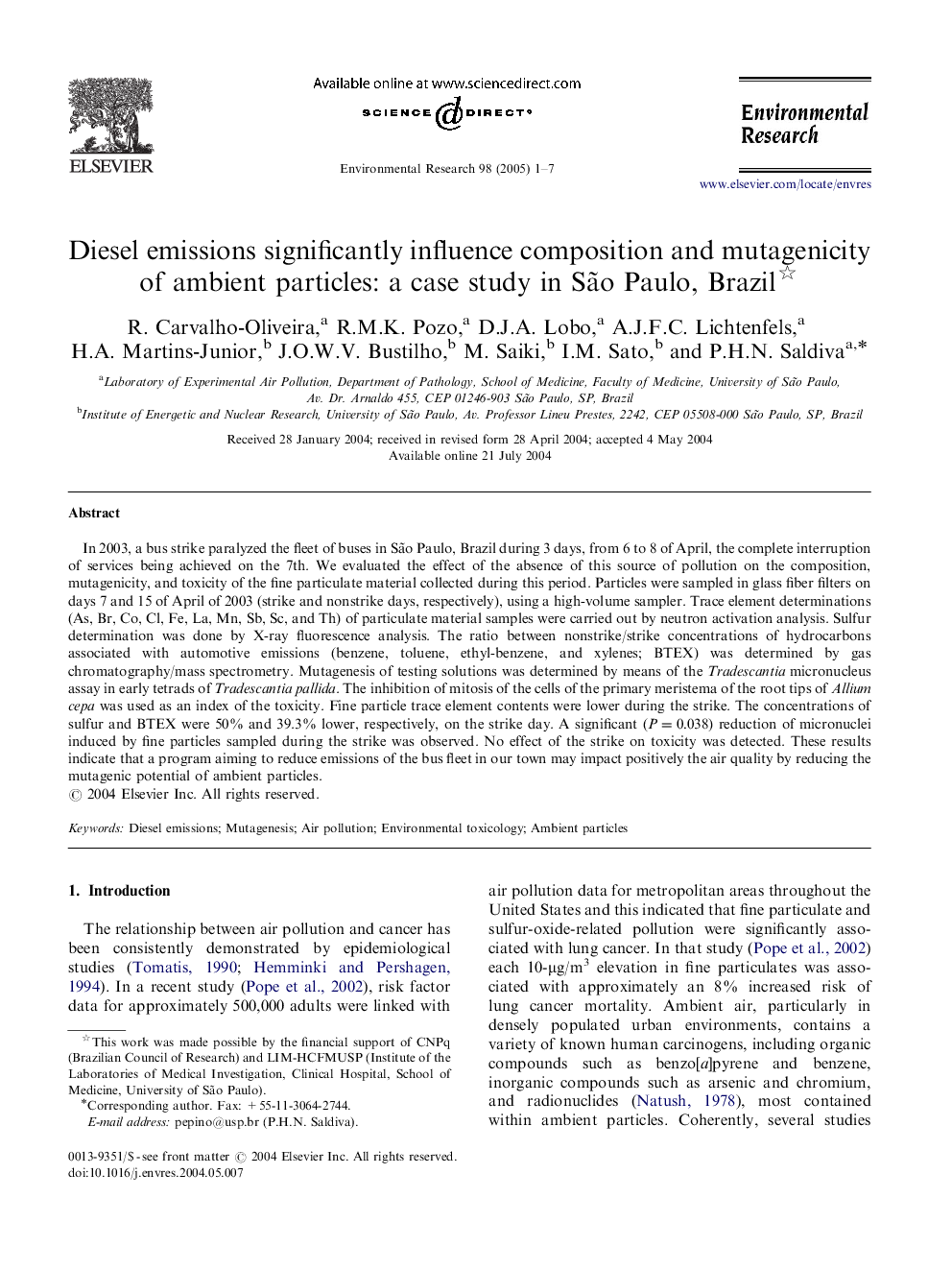| Article ID | Journal | Published Year | Pages | File Type |
|---|---|---|---|---|
| 9464559 | Environmental Research | 2005 | 7 Pages |
Abstract
In 2003, a bus strike paralyzed the fleet of buses in São Paulo, Brazil during 3 days, from 6 to 8 of April, the complete interruption of services being achieved on the 7th. We evaluated the effect of the absence of this source of pollution on the composition, mutagenicity, and toxicity of the fine particulate material collected during this period. Particles were sampled in glass fiber filters on days 7 and 15 of April of 2003 (strike and nonstrike days, respectively), using a high-volume sampler. Trace element determinations (As, Br, Co, Cl, Fe, La, Mn, Sb, Sc, and Th) of particulate material samples were carried out by neutron activation analysis. Sulfur determination was done by X-ray fluorescence analysis. The ratio between nonstrike/strike concentrations of hydrocarbons associated with automotive emissions (benzene, toluene, ethyl-benzene, and xylenes; BTEX) was determined by gas chromatography/mass spectrometry. Mutagenesis of testing solutions was determined by means of the Tradescantia micronucleus assay in early tetrads of Tradescantia pallida. The inhibition of mitosis of the cells of the primary meristema of the root tips of Allium cepa was used as an index of the toxicity. Fine particle trace element contents were lower during the strike. The concentrations of sulfur and BTEX were 50% and 39.3% lower, respectively, on the strike day. A significant (P=0.038) reduction of micronuclei induced by fine particles sampled during the strike was observed. No effect of the strike on toxicity was detected. These results indicate that a program aiming to reduce emissions of the bus fleet in our town may impact positively the air quality by reducing the mutagenic potential of ambient particles.
Related Topics
Life Sciences
Environmental Science
Health, Toxicology and Mutagenesis
Authors
R. Carvalho-Oliveira, R.M.K. Pozo, D.J.A. Lobo, A.J.F.C. Lichtenfels, H.A. Martins-Junior, J.O.W.V. Bustilho, M. Saiki, I.M. Sato, P.H.N. Saldiva,
